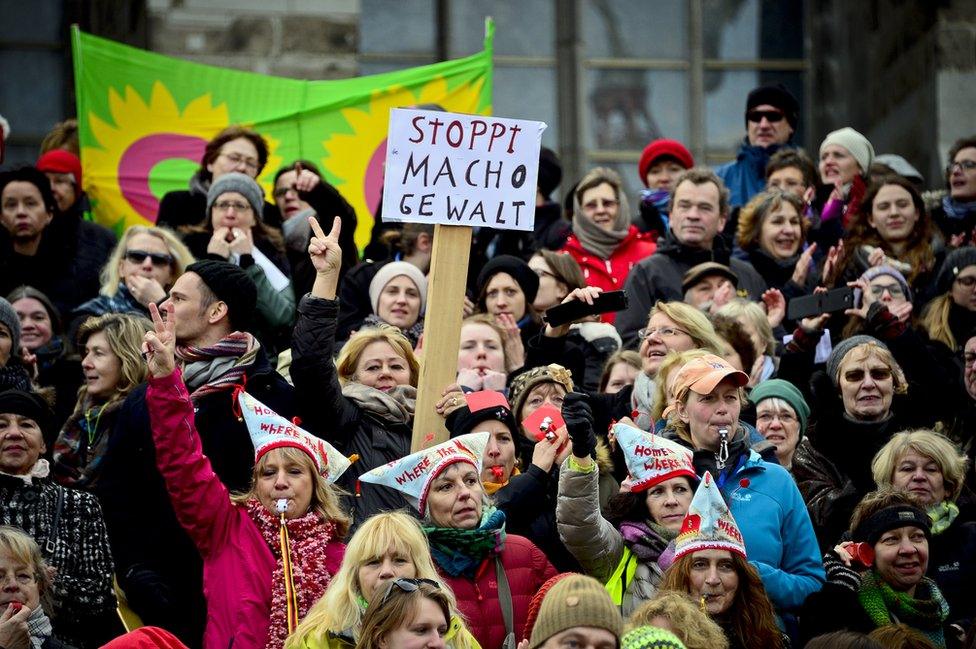Cologne sex attacks: MPs debate tougher laws
- Published

"No violence against women": There was outrage after New Year's Eve sexual assaults that happened near Cologne cathedral
The German parliament is debating draft laws to give women more protection in sexual violence cases.
Dozens of sexual assaults in Cologne on New Year's Eve shocked Germany, increasing the pressure to pass tougher laws on rape and molestation.
The new legislation could make groping punishable in more cases.
Campaigners for women's rights want the "No means No" principle enshrined in law. They say a woman should not have to prove that she resisted physically.
Justice Minister Heiko Maas wants courts to be able to punish sexual violence in cases where a woman felt unable to resist physically.
It is argued that current German law does not adequately protect victims who come under sexual pressure, who lack any means to defend themselves or who are subject to a surprise attack.
The tougher legislation would include: a woman assaulted in a park without any witnesses nearby, or a wife assaulted at home at night, who does not want to distress her children.
The justice ministers of Saxony and Bavaria say groping ought to be punished by up to two years in jail or a fine.
The Saxony Justice Minister, Sebastian Gemkow, said it was time for the judiciary to treat groping as a criminal offence, not as a type of "insult".
"For the victims it's simply incomprehensible when the judiciary dismisses such cases as 'irrelevant'," he said.
High-profile campaign
Only one in 10 rapes is reported in Germany currently, the n-tv news website reports, and of those, the conviction rate is only 10%.

Cologne prompted a major police and justice rethink in Germany
Some female celebrities are prominent in the "No means No" campaign, including writer and journalist Susanne Froehlich, actors Sibel Kekilli and Jasmin Tabatabai, musician Judith Holofernes and TV chef Sarah Wiener.
A leading campaigner in the Social Democrat (SPD) party, Elke Ferner, said the draft law under discussion still had shortcomings.
"Unfortunately the principle still holds that a women must fight back in order to prove that she resisted," she told Die Welt newspaper (in German)., external
"A 'no' must be sufficient to signal that there is no agreement.
"Of course that refusal would also have to be proven, but the law would thereby establish a norm which any moderately intelligent man could understand," she said.
Women made more than 550 complaints of sexual assault after the New Year's Eve celebrations in Cologne. Similar attacks also happened in Duesseldorf and Hamburg, on a lesser scale.
Victims described how suddenly gangs of drunken men - many of them North African migrants - surrounded them at night, groped them and stole items such as mobile phones.
Police say many of the attackers may never be caught. Several North African men have been convicted of theft.